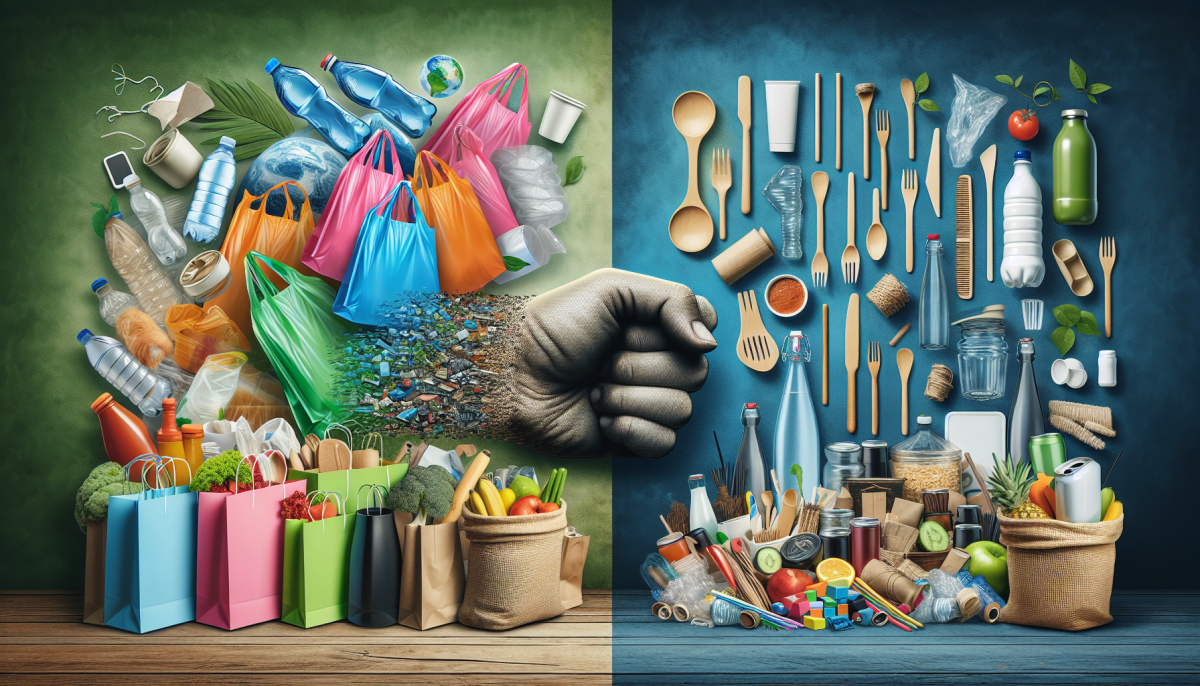Biodegradable materials are becoming a popular alternative to traditional plastics as we strive to reduce our environmental footprint. Unlike conventional plastics that can take hundreds of years to decompose, biodegradable materials break down naturally and return to the earth. This process not only minimizes waste but also helps in restoring the health of our planet.
Understanding what makes a material biodegradable is crucial. Typically, biodegradable materials are made from natural substances like starch, cellulose, or plant-based resins. These materials are designed to decompose through the action of microorganisms, such as bacteria and fungi. When exposed to the right environmental conditions, they can disintegrate within a few months to a couple of years, depending on the material and the environment.
Not all biodegradable materials are created equal. Some products are labeled as "biodegradable" but may only break down in specific industrial composting facilities, not in your backyard compost or landfill. Therefore, it's essential to look for trusted certifications when choosing biodegradable products to ensure that they will genuinely decompose in an eco-friendly manner.
By opting for biodegradable materials, we can help decrease the amount of waste that ends up in landfills and oceans. Everyday items like bags, utensils, and packaging can now be made from these sustainable options. Making small changes in our purchasing decisions can collectively lead to significant improvements for our environment, promoting a healthier planet for future generations.
Benefits of Choosing Eco-Friendly Products
Choosing eco-friendly products comes with a host of benefits that can positively impact both your life and the planet. One of the most significant advantages is the reduction of harmful waste. By opting for biodegradable options, you help decrease the amount of plastic that ends up in landfills and oceans, where it can take years to decompose. This helps protect wildlife and preserves natural habitats, allowing ecosystems to thrive.
Another important benefit is the health aspect of using eco-friendly products. Many traditional plastic items can leach harmful chemicals into food and beverages, raising concerns about their long-term effects on our health. By switching to biodegradable alternatives, you minimize your exposure to these toxic substances, promoting a healthier lifestyle for you and your family.
Additionally, eco-friendly products often have a smaller carbon footprint compared to their plastic counterparts. Many biodegradable materials are made from renewable resources and require less energy to produce. This means that not only are you reducing waste, but you are also contributing to a decrease in greenhouse gas emissions. It’s a simple choice that can have a lasting impact on the environment.
Finally, choosing eco-friendly products can enhance your overall quality of life. Many people find joy and satisfaction in making sustainable choices that align with their values. By supporting eco-friendly brands, you also encourage companies to prioritize sustainability, helping to shape a market that favors environmentally responsible practices. This shift not only empowers consumers but also fosters a community dedicated to making a positive difference.
Simple Swaps for Your Daily Life
Making small changes in our daily lives can significantly reduce plastic waste. One effective approach is to swap out commonly used plastic items for eco-friendly biodegradable options. These simple swaps not only help the environment but also encourage sustainable living.
Start with your shopping habits. Instead of using plastic bags, consider investing in reusable cotton or jute bags. These bags are not only durable but also decompose naturally over time. When you grab your groceries, you’ll be contributing to a cleaner planet and minimizing your plastic footprint.
Next, rethink your food storage solutions. Instead of plastic wrap, opt for beeswax wraps or silicone food covers. Beeswax wraps are made from organic materials and can be reused many times, while silicone covers create a seal that keeps food fresh without the environmental impact of plastic. Choose these alternatives to keep your leftovers without the guilt.
Lastly, evaluate your personal care products. Many toothbrushes and razors are made from plastic. Switching to bamboo toothbrushes and safety razors can make a significant difference. Bamboo is a renewable resource, and these products are biodegradable, so when they reach the end of their life, they won’t linger in landfills for hundreds of years.
Steps to Reduce Plastic Waste
Reducing plastic waste is a vital step towards preserving our planet. The first step is to assess your current plastic usage. Take a moment to look around your home and identify items that are made from plastic. Consider everyday items like water bottles, shopping bags, and food containers. Recognizing the amount of plastic you use is key to making meaningful changes.
Once you know how much plastic you consume, it’s time to make alternatives more accessible. Start by replacing disposable plastic items with reusable alternatives. Invest in a durable water bottle, reusable shopping bags, and stainless steel or glass containers for food storage. These alternatives not only reduce plastic waste but are often more economical in the long run.
Another effective step is to embrace bulk buying. Purchase food and household items in bulk to minimize packaging waste. Many stores now offer bulk bins for grains, nuts, and dried fruit, which often reduce the need for single-use plastic packaging. Bring your own containers to fill up, and you’ll leave the store with much less plastic waste.
Finally, support brands and companies that prioritize sustainable practices. Seek out businesses that use biodegradable or recycled materials in their packaging. By choosing to shop with eco-friendly brands, you send a message that sustainable practices matter to consumers. Every small step counts, and together we can make a significant impact on reducing plastic waste.

